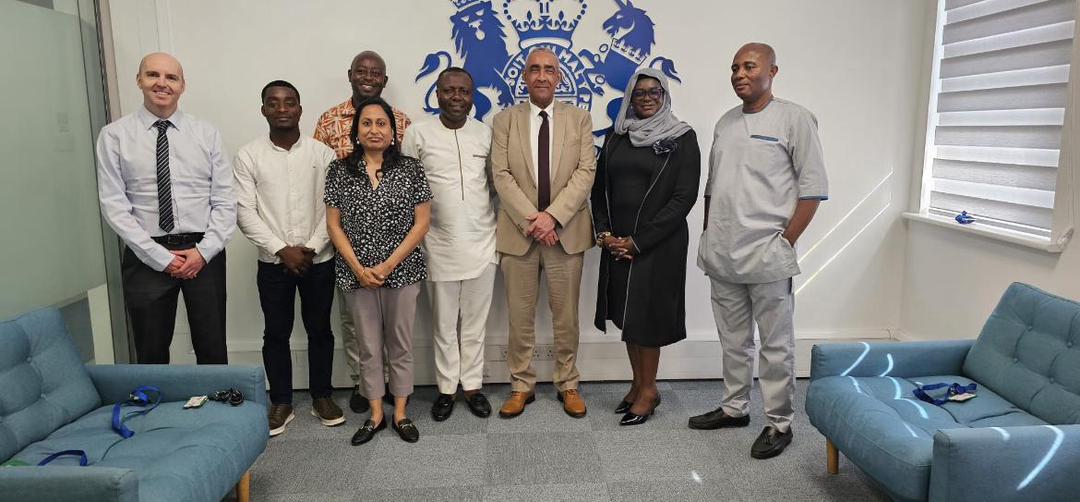UK Ministry of Justice confers with CCF on the repatriation of 80 prisoners to Ghana
Key officials from the United Kingdom’s Ministry of Justice have met Crime Check Foundation (CCF) at the British High Commission in Accra to deliberate on the repatriation of some eighty Ghanaian prisoners from the UK.
In recognition of the impact of CCF’s work on the operations of prisons, the high-level officials had to visit Ghana to meet with a team from the Ghana-based crime prevention advocacy organization, led by its Executive Director, Ibrahim Oppong Kwarteng.
This followed an earlier courtesy call on CCF at its offices in Accra by a delegation from the UK Embassy in Ghana for a partnership to improve prison conditions.
The foreign officials were impressed by the work of CCF and the level of knowledge when it engaged it with questions on the operations of prisons in Ghana.
The officials sought to understand the prison system in Ghana and, needed expert advice on the successful integration of the UK jailed Ghanaians into various prisons across the country.
A video documentary by Crime Check Foundation detailing the reality of the conditions in Ghana’s prisons, got the officials gripped by the work of the Foundation.
Ibrahim Oppong Kwarteng who doubles as the Ambassador Extraordinaire of Ghana Prisons further explained the need for support from the UK government to help expand prison infrastructure to make it easy for the facility to absorb the UK prisoners.
Mr. Kwarteng who is a PhD candidate, writing a thesis on the ‘Socio-cultural Factors Affecting the Integration and Rehabilitation of Migrant Prisoners’, responded to pressing questions from the UK officials on the infrastructure deficit and the conditions in prisons.
“The Kumasi Prison, for instance, was meant for about 400 inmates but now houses more than 2000 prisoners. This means that if there will be a repatriation of prisoners from the UK, there must be support to help expand infrastructure to accommodate them without difficulty,” Mr. Kwarteng said.
He also explained that despite the challenges, Ghana prison is an institution thriving on the cordial relationship between inmates and officers for effective rehabilitation.
“The inmates and the officers maintain a good relationship. When an inmate falls sick, an officer could use his vehicle to transport him to a health facility. This helps them to relate well and make the inmate abide by the rules. The inmates therefore do not engage in vandalism unlike what we hear in the UK. So the prisons in Ghana are safe,” he touted.
The UK and Crime Check Foundation have enjoyed a long partnership. In 2023, a UK-based NGO, Amnesty International dispatched some volunteers to Ghana under the supervision of CCF to learn about prisons in Ghana.
The Foundation among its advocacy projects is pushing for the passage of the Non-Custodial Sentencing bill that is currently before cabinet.
It also pays for the release of some persons jailed for minor offences under its Petty Offenders project to help decongest the prisons.
These interventions have won the organization many laurels and recognition locally and internationally.
By Rudolph Nandi




